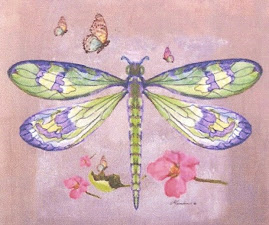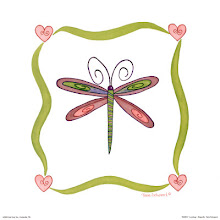I have started this review twice now. The first one, I was trying to do a serious "New York Times" type of book review. I have neither the talent nor the desire I guess, because it just wasn't working. So here goes, me telling you about a book I've read and what I thought of it.
My general feelings about Second Nature, was that it was interesting. It was not what I imagined-a book full of gardening hints and what types of flowers and plants to put in a garden. It was rather one man's evolution from a novice gardener who expected great things from his newly acquired land, to a self satisfied gardener who found a new respect for his gardens.
I think the main theme, his dilemma so to speak, was finding his own way. And in doing this he shares with us his thought processes. One of the first problems he has to solve is that of learning to deal with nature if you want to garden the naturalist's way. Should he simply let nature take her course after the planting or does he step in and take measures to save his garden. This was actually fun to read about. He does mightily battle against a woodchuck!
Along the way, we gain insights into his quandary by learning of his experiences in gardening during his childhood. He refers to his younger self throughout the book and for me these glimpses were enlightening. His grandfather fostered his love of growing things, while his father had little use or time for anything green. From a very structured garden replete with row upon row of vegetables and flowers with no weeds allowed to Pollan's desire to be a total naturalist, we follow.
While I found a lot of his musings redundant and verbose, I did learn a lot about the history of gardens. I now understand why Americans so love their lawns and how Thoreau, Emerson and Wordsworth writings still influence generations of gardeners. I read about the rose... from the old roses with royal pedigrees to the new hybridized roses of questionable heritage. Then there was the question of weeds. What constitutes a weed depends on who's garden it is in. I learned, also, that most of the plants we now consider weed are alien species brought to America by the earliest settlers.
Of course Pollan eventually comes to terms within himself and finds he can and must coexist with nature. He realises we each have to follow our own path when gardening. Whether it is the romantic, the Jeffersonian, the naturalist or the picturesque garden or a combination of some or all of these we desire, it is in the end our decision. To do with as we please with our plot of land is our right and we have no one to please but ourselves.
Tuesday, April 1, 2008
Subscribe to:
Post Comments (Atom)































9 comments:
I read Omnivore's Dilemna by the same author and my critique of that would be similar (except it was about food not gardening). I'll look for Second Nature, it sounds like something I would enjoy.
I am just getting into the book, Spring chapter which is appropriate for this time of year. I think I will like it.
Hi Beckie....What a lovely post again, you are getting to the heart of this woman.
My garden is planned totally with nature in mine. My header says Sancturay....and that is what my garden is to me. I can be reclusive, and my garden hides me away if you like.
Lawns, I have grass with wild flowers in it. I know most people do not like the idea, but the insects it attracts is amszing.
Gardens reflect the people that live within that space. I have met lovely people and read their opinions on gardening and nature and it has enhanced my life.
Tku Beckie for an inspriational piece of writing.
A great review, Beckie. I've read several reviews of Pollan's book this morning, and it is interesting how each reviewer focuses on something different. I'm like you--if I'm going to read a book on gardening, it is going to be a how-to book with tips and lots of photos to inspire me.
That said, I am pleased with the idea of making a garden your personal space, not worrying about how it might look to outsiders.
I love Cheryl's blog title--Sanctuary--I, too, see a garden as a refuge, a healing place, or a place to ponder the relationship between ourselves and nature.
Good review! I'm impressed that you took on reviewing the whole book. It's good to understand the historical background of different aspects of gardening, so that we can question them to determine whether the original rationale still makes sense for each of us individually or all of us collectively, or whether something should be rejected because of changed circumstances. (I hope that wasn't too verbose.)
Thanks for joining in the book club with your review. I added it to the list of reviews on my blog post earlier this morning.
Carol, May Dreams Gardens
Beth, I might like Omnivore's Dilemma. My second passion is food!
Lisa, hope you enjoy it!
Cheryl, Thank you. I am so glad there are people like you who are dedicated to helping nature. She can use the help!
Nancy, Thank you!
Rose, you can count on a friend to come through. I appreciate your comment. I, too, think our gardens should please us first.
MMD, I did have to push my self a time or tow to get through it, but I liked the history and the different views of gardening. And it did make me think!
Carol, Thank you. I enjoyed being a part of the book club and look forward to reading more!
Beckie, you wrote a beautiful review, one that was fully of humanity. The NYT could have more of that.~~Dee
Thanks, Dee. I haven't written a book report in over 40 years! But I do love to read and I like sharing my books with others.
Post a Comment